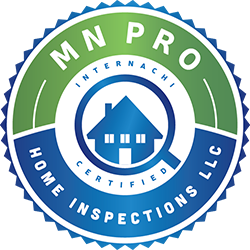Buying a home is an exciting milestone, but it can also be a vulnerable time for new buyers. Scammers often target those unfamiliar with the homebuying process, exploiting their trust and eagerness. Being informed about common scams targeting new homebuyers and how to avoid them is crucial to safeguarding your investment.
Wire Fraud Scams Targeting New Homebuyers
One of the most prevalent scams involves wire fraud during the closing process. Scammers pose as your real estate agent, lender, or title company and send fraudulent emails with instructions to wire funds to a fake account. These emails often look legitimate, complete with professional logos and convincing language.
To protect yourself, always verify wire transfer details directly with your trusted contacts using a known phone number. Avoid relying solely on email communications, especially if there are last-minute changes to payment instructions.
Fake Listings and Phantom Rentals
Scammers sometimes post fake property listings to steal money from hopeful buyers. They may use photos of real properties and create false advertisements on reputable platforms. After piquing your interest, they’ll request deposits or application fees to “hold” the property, only for you to discover the home doesn’t exist or is already owned by someone else.
Always confirm a property’s authenticity by working with a licensed real estate agent and conducting an in-person visit. If a deal seems too good to be true or if someone pressures you to send money quickly, it’s likely a red flag.
Loan and Mortgage Scams
New buyers are also at risk of loan-related scams. Fraudulent lenders or brokers might promise unbeatable rates but charge excessive fees or misrepresent terms. Sometimes, they may even steal your personal information for identity theft.
Protect yourself by thoroughly researching lenders and working only with reputable institutions. Review all documents carefully and consult a trusted advisor if anything seems unclear.
Home Inspection Scams
Some might claim to be home inspectors but lack proper credentials or expertise. They may perform a superficial inspection, miss major issues, or inflate minor problems to drive up costs.
Hire a certified professional with verifiable experience and references to ensure a thorough inspection. A trusted home inspector provides a detailed report, empowering you to make informed decisions about the property.
Closing Cost Scams Targeting New Homebuyers
Closing costs can be confusing for first-time buyers, and scammers exploit this by pretending to be title companies or attorneys. They send fake invoices demanding payment for bogus fees or services.
Understand the typical closing costs in your area and maintain direct communication with your legitimate title company or attorney. Verify all charges against your settlement statement before making payments.
How to Stay Safe
Education and vigilance are your best tools to combat scams. Know who you’re working with and verify credentials before sharing sensitive information or transferring funds. Trust your instincts—if something feels off, take a step back and investigate further.
If you encounter a scam or suspect one, report it to local authorities and organizations like the Federal Trade Commission (FTC). Sharing your experience could prevent others from falling victim.
By staying informed and cautious, new homebuyers can navigate the process confidently while avoiding scammers’ traps. Awareness is the first step toward protecting one’s dream of homeownership.
FAQs on Scams Targeting New Homebuyers
What should I do if I’ve already sent money to a scammer?
Act quickly by contacting your bank or wire transfer service to report the fraud and request a reversal. Also, file a complaint with the FTC and your local law enforcement.
How can I confirm a home inspector is legitimate?
Check their certifications and affiliations with organizations like ASHI or InterNACHI. Read reviews and ask for references to ensure they’re credible.
Are all online listings safe to trust?
No. Scammers can easily create fake listings. Work with a trusted real estate agent and confirm the legitimacy of the property before making any payments.
Why are first-time buyers targeted so often?
First-time buyers are usually less familiar with the process and may unknowingly share sensitive information or trust fake professionals. Scammers exploit this lack of experience.
What’s the safest way to handle wire transfers?
Always verify wire instructions by calling a trusted contact using a number you know. Avoid making changes based solely on emails or texts.
MN Pro Home Inspections offers inspection services to homebuyers and sellers in the Twin Cities and Western Wisconsin. Contact us to request an appointment.

